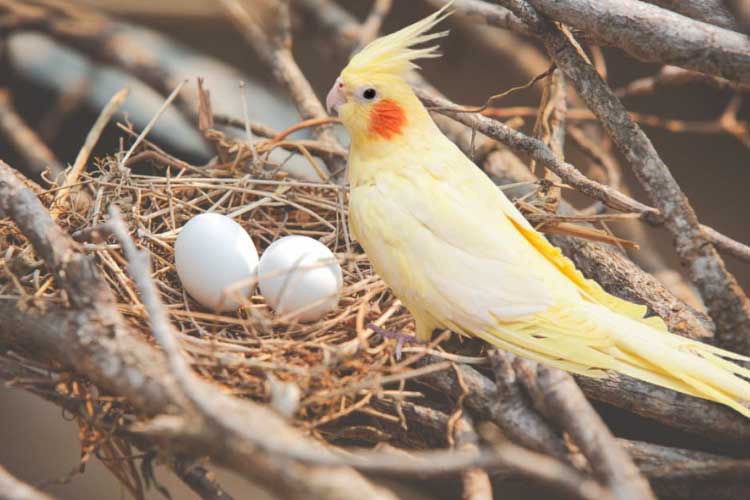Seeing your adoring pet bird gives birth to babies is fascinating, but it leaves you with some challenges as a sincere owner. You can do many things during the pre and post-egg laying period to ease things up for your feathered friend.
How often do Cockatiels lay eggs? Cockatiels lay eggs 1 to 2 times a year. But sometimes they give three clutches of eggs too. In about a week or two after mating, female cockatiels lay eggs. For one egg, they usually take 36 to 48 hours until they complete a clutch. They require 18 to 24 days of incubation for hatching after a full clutch.
The entire process, from laying eggs to hatching new chicks, takes around 35 to 40 days to complete. The process may seem a little annoying, but once you help your bird complete the process successfully, you’ll forget every difficulty after seeing those adorable little chicks. Let’s find out what more you can do.
How Often Do Cockatiels Lay Eggs?
Cocktails typically produce two clutches of eggs each year. But occasionally, they lay three, which is unusual but does happen.
A clutch is the collective number of eggs a bird lays during nesting time. Among the main taxonomy groups, clutch sizes can vary.
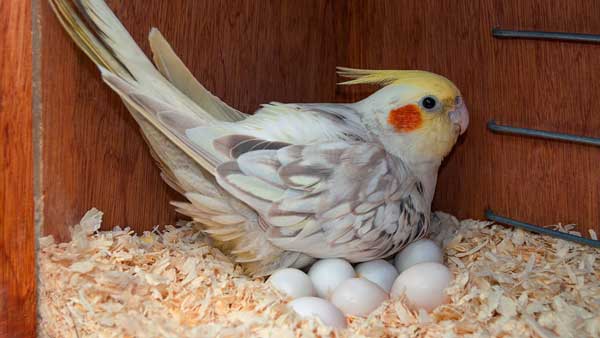
During a clutch, cockatiels lay one egg every 36 to 48 hours. Some birds, though, are capable of giving more. In general, cockatiels lay 4 to 6 and a maximum of 8 eggs per clutch.
However, the number is typically not less than two. Once cockatiels start actively nesting, the incubation period lasts 18 to 24 days. However, it usually takes 20 days for the eggs to hatch.
How to Facilitate Cockatiels’ Breeding?
In pet bird breeding, the owner bears a lot of responsibility. To be honest, the breeding period is challenging. You can assist your cocktails during this time so that they can lay eggs without difficulty. Here are some area owners that can help.
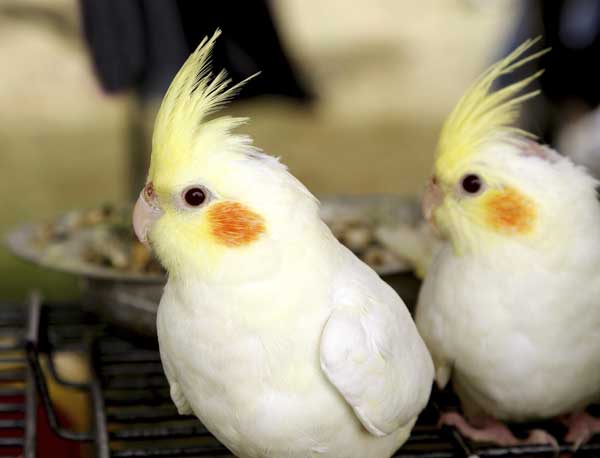
Get a Nesting Box
Your cockatiel must be provided with a nesting box in the cage so they can comfortably lay eggs. A nesting box ensures the eggs remain protected and don’t break by slipping off. The nesting box should be at least 12 x 12 inches for an average breeding cage.
Make sure it includes proper nesting material, like molted feathers, paper towels, or shredded paper. It can ensure a safe place for both the mother and baby birds to rest and get raised.
Cleaning the Area
It is important to keep the cage or nesting area clean. Remove any leftover food from the cage. Water needs to be changed frequently. Put additional litter if necessary.
Creating Favorable Environment
The environment is crucial during the breeding season. Cocktails in their surroundings prefer a little warmth. So, you must make it comfortable by ensuring a suitable temperature, typically ranging from 65f to 80F. The warmer, the better during this period.
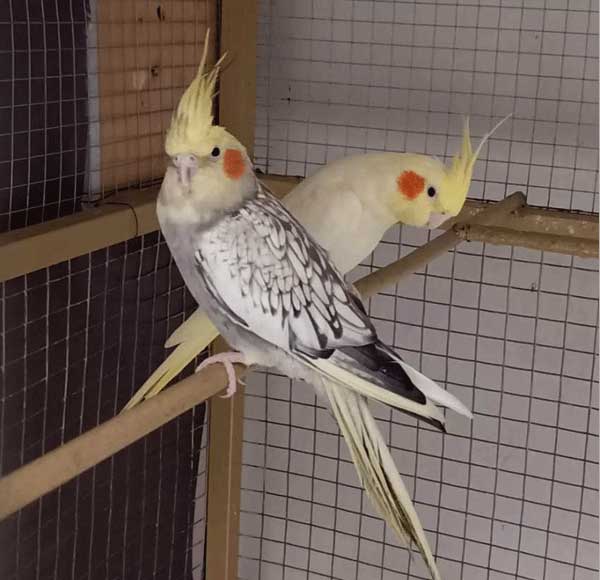
Providing a Bigger Cage
A larger cage is required because a nest must be constructed there for your cockatiels to sit for incubation. In addition, they require enough space to move around and exercise. You must also provide enough toys for them to play with.
Providing Proper Food
Both male and female cockatiels need nutritional food at this time. Therefore, you must be picky when serving food. Make an effort to include more nutritious food at every mealtime. For calcium, you can give cuttlebone.
Keeping Everything Close To The Nesting Area
The female cockatiel won’t get up from her perch once she’s seated for egg-laying or egg incubation. Even when necessary, like when she needs to drink water or eat, she won’t move. Therefore, keep everything close to her.
How To Handle Cockatiels That Have Just Laid Eggs
You need to do a few things when your bird just lays eggs.
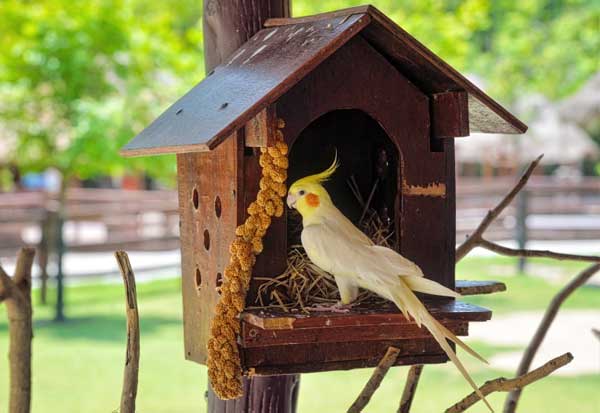
Check Fertility
The eggs’ fertility can be checked after two days of egg laying. You must examine the embryonic development inside the egg while holding the egg up to bright light. If you can’t see any bloodstream or vessels, the egg is infertile.
Infertile eggs typically never develop properly. If the egg is fertile, it will hatch properly.
Maintain temperature
When your bird has just laid an egg, it is critical to maintaining the room’s temperature. The reason is incubation is all about maintaining temperature. The mother bird will remain seated during incubation after laying an egg.
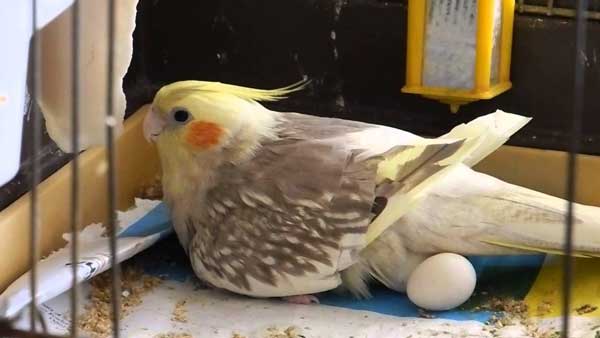
The room’s temperature needs to be consistent. If it does change, it must be properly maintained. For many birds’ eggs, 98.6 degrees Fahrenheit is the ideal temperature for incubation.
Help For Incubation
Check if the mother bird is properly incubating or not. If it incubates the egg to hatch, then it’s fine. You just need to take care of the mother bird by giving food and water to her.
However, you will need to work for this if the mother refuses to incubate or becomes ill. You are also able to hatch a bird egg without an incubator. If you feel it is too difficult, speak with a veterinarian.
How Does Cockatiel Egg-Laying Affect Health?
There are several reproductive diseases of Pet Birds Associated with egg laying. Some of these include:
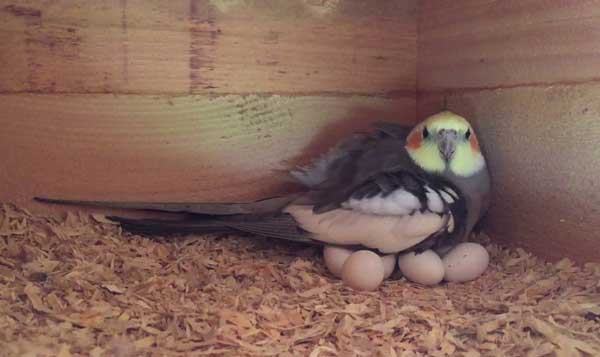
Egg Binding
Cockatiels often deposit eggs with incredibly thin shells, which is commonly known as egg bonding. The majority of eggs were destroyed during growth.
This basically happens when there is a lack of nutrition. Oviductal disease or neoplasia is also responsible for these issues.
Calcium supplement is one of many treatments. Fluid therapy also works.
Excessive Egg Laying
Excessive egg laying happens when birds repeatedly clutch more than normal time. The health of birds is greatly affected when this chronic egg-laying occurs.
Dystocia is one of the common illnesses. Other than this, impacted oviduct, egg-yolk peritonitis also happens.
Reproductive Failure
Reproductive failure is a result of a variety of causes. Reproduction is more likely to fail when two birds are of the same sex.
Also, when birds are not fully mature, these things happen.
For treatment, birds need multiple physical examinations, including hematologic testing.
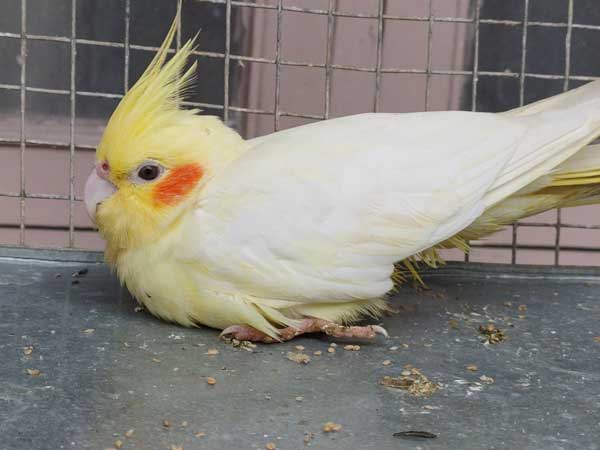
Behavioral Issues
You notice several behavioral difficulties in your bird when it has ailments that affect egg production.
Feather picking, screaming, panting, and mutilation are common behavioral issues.
To resolve this problem, owners must focus on temperature, eating habits, and movement patterns.
FAQs
The following are some frequently asked queries about cockerels laying eggs. I hope this will also aid in your understanding.
Cockatiels are distinct from other birds. They do not have a specific season for breeding or laying eggs. Though it has been observed that the breeding season for wild cockatiels is from September to December, other cockatiels can breed at any time.
Yes, Cocktails can lay eggs without mating, and it happens frequently. The breeding and reproduction of pet birds are quite different. Egg laying is not like taking babies. This is basically the equivalent of ovulation. Estrogen and luteinizing hormones are responsible for ovulation. But they will remain unfertilized.
In general, they lay one or two clutches of eggs per year. They can even go three clutches without becoming ill, though. Therefore, three clutches are adequate. Over three would be dangerous.
Final Words
Hopefully, this has answered your question about ‘how often cockatiels lay eggs?’
Generally, cockatiel lays eggs one or two times a year. However, the number can differ depending on the species. Laying an egg is a crucial stage. The bird needs assistance from its owner at this time.
Here, we’ve covered the best practices for breeding cocktails so that they can produce healthy eggs. Additionally, we discussed what to do if your bird has just laid eggs. We concluded by discussing some typical health problems and their solutions to egg laying. Thanks for reading!
